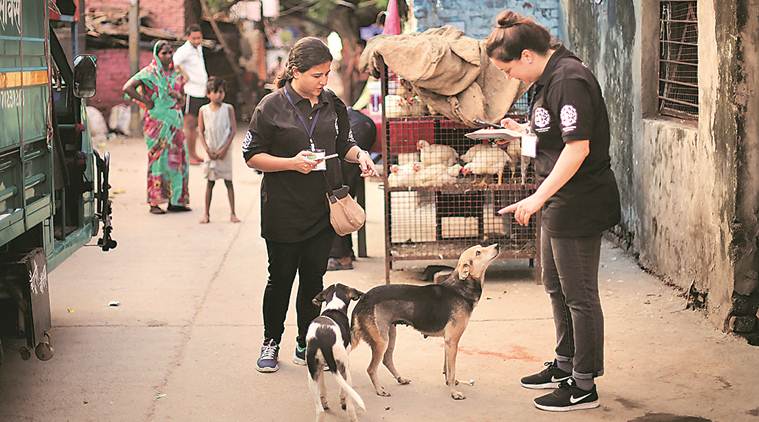
Bitten by a dog in his locality on February 12, Pawan Chaudhary (24) spent the next eight hours running to three government hospitals to get an anti-rabies vaccine — only to be turned away each time. A resident of Shahdara, he was finally referred to Ram Manohar Lohia Hospital for a shot.
“The anti-rabies clinic (ARC) at GTB Hospital didn’t have it; it is not even available at a local dispensary,” said Chaudhary. For the past month, most government hospitals and dispensaries in the capital have been facing an acute shortage of anti-rabies vaccine.
“The vaccine is not easily available in the market. With vendors not being able to meet the demand, we have to turn away patients. We have raised the issue with the Delhi government’s Central Procurement Agency (CPA), but even it has not received the supply,” Dr Sunil Kumar, medical director of GTB Hospital, told The Indian Express.
Lok Nayak, one of Delhi government’s biggest hospitals, sees around 250 dog bite cases every day. For now, the hospital said it is purchasing vaccines on its own.
Vaccinating dogs way out
Rabies deaths in people are 100% preventable through prompt medical care. Vaccinating dogs is the most cost-effective strategy. As per the World Health Organisation, India accounts for 36% of the world’s deaths. About 30-60% of reported rabies cases and deaths in India occur in children under 15, as bites often go unrecognised, unreported.
The most commonly used vaccine is Rabipur which, as per hospitals, is not available. The other two vaccines are Zoonovac-V and Abhayrab. All three cost around Rs 300. “Rabipur has not been available for over a month now… the other vaccines are also in short supply. Sometimes, supply of the other two vaccines is delayed due to excessive demand,” said Kailash Gupta, president of the All India Chemists Association.
On the shortage of vaccines, Dr Ashok Rana, Director General of Health Services (DGHS), Delhi government, said: “There is only one manufacturer supplying anti-rabies vaccines, and at present they are being supplied only to central government hospitals. Due to excessive demand, the supply of the vaccines cannot be met.”
Denying any shortage of Rabipur in the capital, a spokesperson for GlaxoSmithKline India, which manufactures the vaccine, said: “We continue to supply Rabipur, including in Delhi, through our usual distribution channels.”
Amid the crisis, the number of patients visiting the ARC at RML Hospital have almost doubled. In the last few months, the Centre-run hospital has been treating around 400-500 patients a day.
“Earlier, we used to get around 150 patients a day, but due to shortage of vaccines in other hospitals and dispensaries, OPD numbers have risen to 500 cases,” said a senior doctor.
Last year, the three municipal corporations registered over 17,000 cases of dog bites. Rabies is caused by a virus that is transmitted to humans through the infected saliva of a range of animals. But most human deaths follow a bite by, or exposure to, an infected dog.